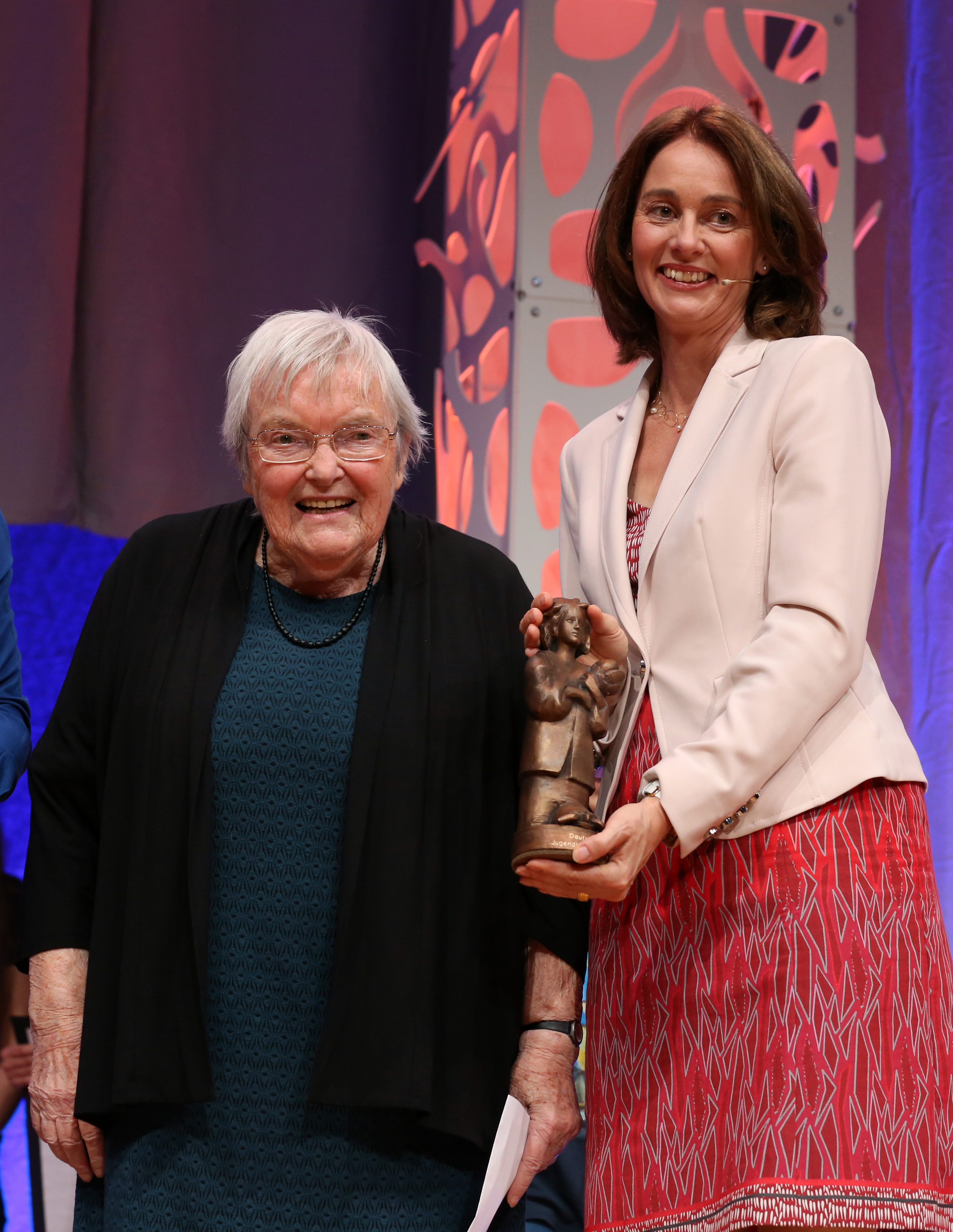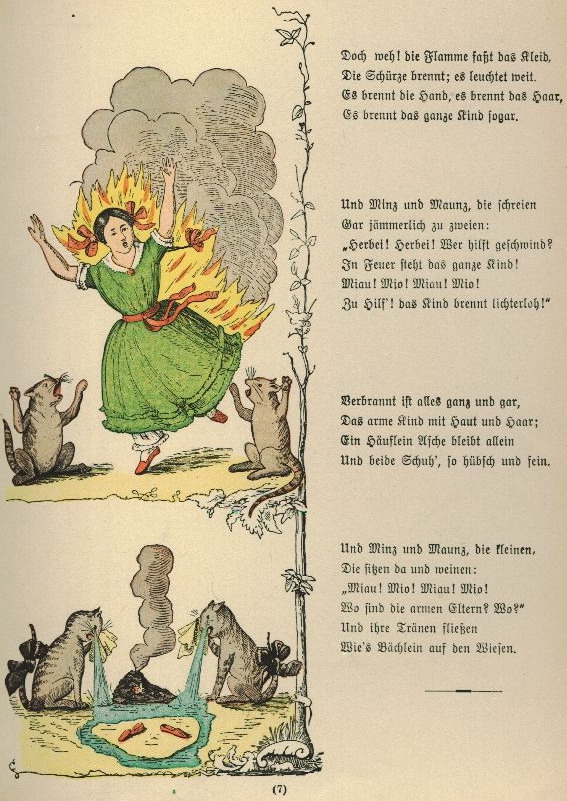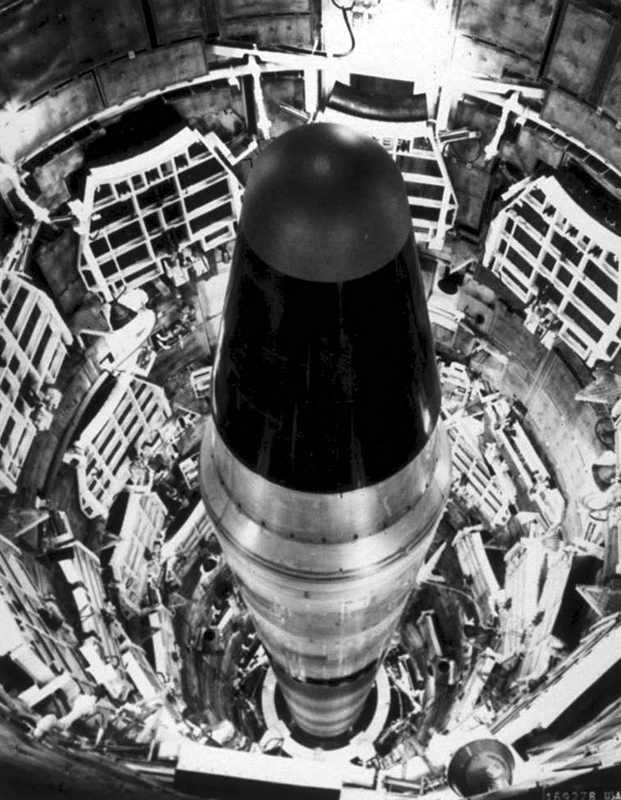|
The Last Children Of Schewenborn
''The Last Children of Schewenborn'' (German: ''Die letzten Kinder von Schewenborn'') is a 1983 novel by Gudrun Pausewang, depicting life in rural Germany in the aftermath of a nuclear war. While the story is entirely fictional, Pausewang confirmed in the book's epilogue that she created its main setting, the small town of Schewenborn, in the image of Schlitz in East Hesse, where she herself used to live. Plot summary The plot is set within the framework of a Cold War scenario very similar to the geopolitical situation at the time of writing. It is told from the perspective of Roland, a 12-year-old boy from Bonames (a district of Frankfurt), who travels with his parents and sisters to visit his grandparents in Schewenborn. During their journey, they are surprised by a nuclear attack. As emergency response systems fail to activate and no humanitarian aid reaches them, the survivors have to assume that the whole of Germany, or even the entire civilized world, may have been destro ... [...More Info...] [...Related Items...] OR: [Wikipedia] [Google] [Baidu] |
Gudrun Pausewang
Gudrun Pausewang (3 March 1928 – 23 January 2020), less commonly known by her married name, Gudrun Wilcke, was a German author of children's and young adult literature. She was known for books such as ''The Last Children of Schewenborn'' and ''Die Wolke'' (''The Cloud'', translated in the English book title as ''Fall-Out'') which were made part of German school canons. Among her primary topics were work for peace and protection of the environment, namely warning of the alleged dangers of nuclear energy. Her books have been translated into English and received international recognition and awards. Biography Pausewang was born in Wichstadtl (now Mladkov), Eastern Bohemia, a member of the German minority in Czechoslovakia. Her father was Siegfried Pausewang, and she was the eldest of six siblings. After the Nazis annexed the area, she became a Jungmädel at age 10 and remained in the organisation until age 17. Her father died in World War II, and her mother fled with the child ... [...More Info...] [...Related Items...] OR: [Wikipedia] [Google] [Baidu] |
Cautionary Tale
A cautionary tale is a tale told in folklore to warn its listener of a danger. There are three essential parts to a cautionary tale, though they can be introduced in a large variety of ways. First, a taboo or prohibition is stated: some act, location, or thing is said to be dangerous. Then, the narrative itself is told: someone disregarded the warning and performed the forbidden act. Finally, the violator comes to an unpleasant fate, which is frequently related in expansive and grisly detail. Cautionary tales and conformity Cautionary tales are ubiquitous in popular culture; many urban legends are framed as cautionary tales: from the lover's lane haunted by a hook-handed murderer to the tale of a man who shot a cactus for fun only to die when the plant toppled onto him. Like horror fiction, generally the cautionary tale exhibits an ambivalent attitude towards social taboos. The narrator of a cautionary tale is momentarily excused from the ordinary demands of etiquette that di ... [...More Info...] [...Related Items...] OR: [Wikipedia] [Google] [Baidu] |
Children's Science Fiction Novels
A child ( : children) is a human being between the stages of birth and puberty, or between the developmental period of infancy and puberty. The legal definition of ''child'' generally refers to a minor, otherwise known as a person younger than the age of majority. Children generally have fewer rights and responsibilities than adults. They are classed as unable to make serious decisions. ''Child'' may also describe a relationship with a parent (such as sons and daughters of any age) or, metaphorically, an authority figure, or signify group membership in a clan, tribe, or religion; it can also signify being strongly affected by a specific time, place, or circumstance, as in "a child of nature" or "a child of the Sixties." Biological, legal and social definitions In the biological sciences, a child is usually defined as a person between birth and puberty, or between the developmental period of infancy and puberty. Legally, the term ''child'' may refer to anyone below th ... [...More Info...] [...Related Items...] OR: [Wikipedia] [Google] [Baidu] |
German Children's Novels
German(s) may refer to: * Germany (of or related to) **Germania (historical use) * Germans, citizens of Germany, people of German ancestry, or native speakers of the German language ** For citizens of Germany, see also German nationality law **Germanic peoples (Roman times) * German language **any of the Germanic languages * German cuisine, traditional foods of Germany People * German (given name) * German (surname) * Germán, a Spanish name Places * German (parish), Isle of Man * German, Albania, or Gërmej * German, Bulgaria * German, Iran * German, North Macedonia * German, New York, U.S. * Agios Germanos, Greece Other uses * German (mythology), a South Slavic mythological being * Germans (band), a Canadian rock band * "German" (song), a 2019 song by No Money Enterprise * ''The German'', a 2008 short film * "The Germans", an episode of ''Fawlty Towers'' * ''The German'', a nickname for Congolese rebel André Kisase Ngandu See also * Germanic (other) * Germa ... [...More Info...] [...Related Items...] OR: [Wikipedia] [Google] [Baidu] |
German Science Fiction Novels
German(s) may refer to: * Germany (of or related to) **Germania (historical use) * Germans, citizens of Germany, people of German ancestry, or native speakers of the German language ** For citizens of Germany, see also German nationality law **Germanic peoples (Roman times) * German language **any of the Germanic languages * German cuisine, traditional foods of Germany People * German (given name) * German (surname) * Germán, a Spanish name Places * German (parish), Isle of Man * German, Albania, or Gërmej * German, Bulgaria * German, Iran * German, North Macedonia * German, New York, U.S. * Agios Germanos, Greece Other uses * German (mythology), a South Slavic mythological being * Germans (band), a Canadian rock band * "German" (song), a 2019 song by No Money Enterprise * ''The German'', a 2008 short film * "The Germans", an episode of ''Fawlty Towers'' * ''The German'', a nickname for Congolese rebel André Kisase Ngandu See also * Germanic (other) * Germa ... [...More Info...] [...Related Items...] OR: [Wikipedia] [Google] [Baidu] |
1983 German Novels
The year 1983 saw both the official beginning of the Internet and the first mobile cellular telephone call. Events January * January 1 – The migration of the ARPANET to TCP/IP is officially completed (this is considered to be the beginning of the true Internet). * January 24 – Twenty-five members of the Red Brigades are sentenced to life imprisonment for the 1978 murder of Italian politician Aldo Moro. * January 25 ** High-ranking Nazi war criminal Klaus Barbie is arrested in Bolivia. ** IRAS is launched from Vandenberg AFB, to conduct the world's first all-sky infrared survey from space. February * February 2 – Giovanni Vigliotto goes on trial on charges of polygamy involving 105 women. * February 3 – Prime Minister of Australia Malcolm Fraser is granted a double dissolution of both houses of parliament, for elections on March 5, 1983. As Fraser is being granted the dissolution, Bill Hayden resigns as leader of the Australian Labor Party, and in the subsequent lead ... [...More Info...] [...Related Items...] OR: [Wikipedia] [Google] [Baidu] |
Gustav Heinemann
Gustav Walter Heinemann (; 23 July 1899 – 7 July 1976) was a German politician who was President of West Germany from 1969 to 1974. He served as mayor of Essen from 1946 to 1949, West German Minister of the Interior from 1949 to 1950, and Minister of Justice from 1966 to 1969. Early years and professional career Heinemann was named after his mother's father, a master roof tiler in Barmen, with radical-democratic, left-liberal, and patriotic views. His maternal grandfather, Heinemann's great-grandfather, had taken part in the Revolution of 1848. His father, Otto Heinemann, a manager at the Krupp steelworks in Essen, shared his father-in-law's views. In his youth, Gustav already felt called upon to preserve and promote the liberal and democratic traditions of 1848. Throughout his life, he fought against all kinds of subservience. This attitude helped him to maintain his intellectual independence even in the face of majorities in political parties and in the Church. Having finish ... [...More Info...] [...Related Items...] OR: [Wikipedia] [Google] [Baidu] |
Buxtehuder Bulle
The Buxtehude Bull (German: Buxtehuder Bulle) is an award for youth literature, established in 1971 by Winfried Ziemann, a local book merchant from Buxtehude, a Hanseatic City located in the Hamburg Metropolitan Region. The town council took over the sponsorship of the award in 1981. The award is given annually to the best children's or young-adults' book published in German (either native language or translated) in the preceding year. The writer is presented with a small steel statue of the bull (German: ''Bulle'') Ferdinand, from the popular work ''The Story of Ferdinand'' by Munro Leaf, and also receives a monetary prize of €5,000. Awards * 1971: Alexander Sutherland Neill, ''Die grüne Wolke'' * 1972: Cili Wethekam, ''Tignasse, Kind der Revolution'' * 1973: Tilman Röhrig, ''Thoms Bericht'' * 1974: Gail Graham, ''Zwischen den Feuern'' * 1975: Johanna Reiss, ''Und im Fenster der Himmel'' * 1976: Jaap ter Haar, ''Behalt das Leben lieb'' * 1977: Gudrun Pausewang, ''Die ... [...More Info...] [...Related Items...] OR: [Wikipedia] [Google] [Baidu] |
Warsaw Pact
The Warsaw Pact (WP) or Treaty of Warsaw, formally the Treaty of Friendship, Cooperation and Mutual Assistance, was a collective defense treaty signed in Warsaw, Poland, between the Soviet Union and seven other Eastern Bloc socialist republics of Central and Eastern Europe in May 1955, during the Cold War. The term "Warsaw Pact" commonly refers to both the treaty itself and its resultant defensive alliance, the Warsaw Treaty Organization (WTO). The Warsaw Pact was the military complement to the Council for Mutual Economic Assistance (Comecon), the regional economic organization for the socialist states of Central and Eastern Europe. The Warsaw Pact was created in reaction to the integration of West Germany into the North Atlantic Treaty Organization (NATO)"In reaction to West Germany's NATO accession, the Soviet Union and its Eastern European client states formed the Warsaw Pact in 1955." Citation from: in 1955 as per the London and Paris Conferences of 1954.The Warsaw Pact R ... [...More Info...] [...Related Items...] OR: [Wikipedia] [Google] [Baidu] |
NATO
The North Atlantic Treaty Organization (NATO, ; french: Organisation du traité de l'Atlantique nord, ), also called the North Atlantic Alliance, is an intergovernmental military alliance between 30 member states – 28 European and two North American. Established in the aftermath of World War II, the organization implemented the North Atlantic Treaty, signed in Washington, D.C., on 4 April 1949. NATO is a collective security system: its independent member states agree to defend each other against attacks by third parties. During the Cold War, NATO operated as a check on the perceived threat posed by the Soviet Union. The alliance remained in place after the dissolution of the Soviet Union and has been involved in military operations in the Balkans, the Middle East, South Asia, and Africa. The organization's motto is ''animus in consulendo liber'' (Latin for "a mind unfettered in deliberation"). NATO's main headquarters are located in Brussels, Belgium, while NATO ... [...More Info...] [...Related Items...] OR: [Wikipedia] [Google] [Baidu] |
Nuclear War
Nuclear warfare, also known as atomic warfare, is a theoretical military conflict or prepared political strategy that deploys nuclear weaponry. Nuclear weapons are weapons of mass destruction; in contrast to conventional warfare, nuclear warfare can produce destruction in a much shorter time and can have a long-lasting radiological result. A major nuclear exchange would likely have long-term effects, primarily from the fallout released, and could also lead to secondary effects, such as "nuclear winter", nuclear famine and societal collapse. A global thermonuclear war with Cold War-era stockpiles, or even with the current smaller stockpiles, may lead to various scenarios including the extinction of the human race. To date, the only use of nuclear weapons in armed conflict occurred in 1945 with the American atomic bombings of Hiroshima and Nagasaki. On August 6, 1945, a uranium gun-type device (code name "Little Boy") was detonated over the Japanese city of Hiroshima. Thre ... [...More Info...] [...Related Items...] OR: [Wikipedia] [Google] [Baidu] |
Environmental Movement
The environmental movement (sometimes referred to as the ecology movement), also including conservation and green politics, is a diverse philosophical, social, and political movement for addressing environmental issues. Environmentalists advocate the just and sustainable management of resources and stewardship of the environment through changes in public policy and individual behaviour. In its recognition of humanity as a participant in (not enemy of) ecosystems, the movement is centered on ecology, health, and human rights. The environmental movement is an international movement, represented by a range of organizations, from enterprises to grassroots and varies from country to country. Due to its large membership, varying and strong beliefs, and occasionally speculative nature, the environmental movement is not always united in its goals. The movement also encompasses some other movements with a more specific focus, such as the climate movement. At its broadest, the ... [...More Info...] [...Related Items...] OR: [Wikipedia] [Google] [Baidu] |






